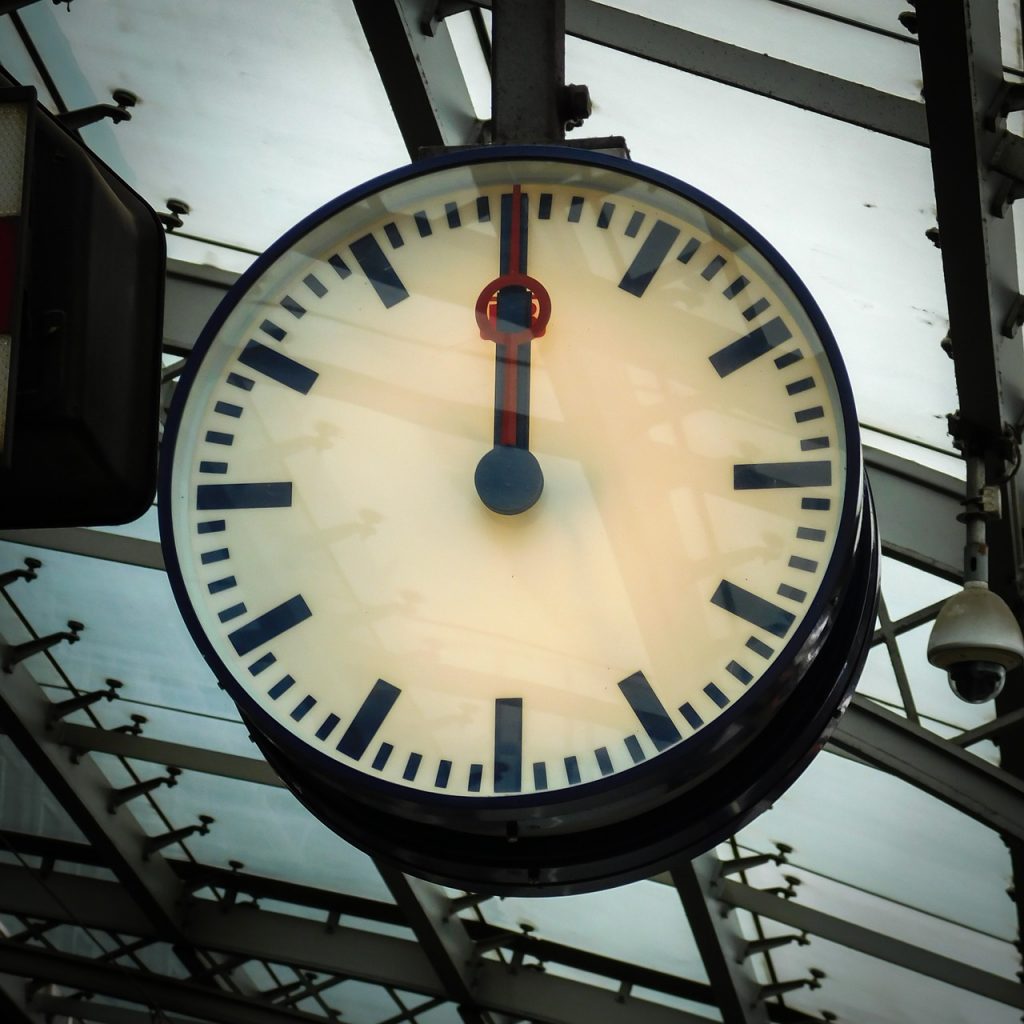Die Stunde Null: Zero Hour Posted by Constanze on Aug 28, 2019 in Language
Guten Tag! Today we continue on the theme of words that tell us a great deal about periods of German history. Today we are looking at four words, but the main one is this: die Stunde Null.
Die Stunde Null translates to ‘the zero hour’, wherein die Stunde means hour, and null is the word for nil. The word null is usually written in lower case in German, however in this context (die Stunde Null) it is capitalised because the whole phrase is considered a name. Remember that in German, all nouns are capitalised.
Die Stunde Null (officially ‘Zero Hour’ in English) refers specifically to midnight on 8th May 1945 – that is, the day that World War 2 came to an end. Germany and its occupying forces were keen to ‘de-Nazify’ Germany as rapidly as possible following the war. The term die Stunde Null implies re-setting the clock to start again from scratch – in other words, creating a new, better Germany.
The 1977 film Stunde Null tells the story of this period in history. The English version is called Zero Hour.
There was a big emphasis during this time on cleaning up – ‘aufräumen’ – to create this new, better Germany. As many of the German men had either died at war, were missing, or were severely injured, it fell to the women to re-build the country. These women became known as die Trümmerfrauen – ‘the rubble women’ – and you can read about them in more depth here.
Another word associated with this period is der Elendswinter – ‘the miserable winter’, wherein the word elend means miserable. This word refers specifically to the winter of 1945-46. Germany was still in ruins during this time, many houses and buildings having been bombed during the war. This winter was also one of the coldest winters in a long time. These two things combined made it extremely difficult, and many people died during it. No wonder it was given the name der Elendswinter.
Lastly, there is the word fringsen. Unlike the other words mentioned in this post, this is a verb. Rations were low in the post-war period, and many found it near impossible to survive without buying and selling on the black market. This is where ‘fringsen’ came into play:
fringsen: to steal in order to survive
This verb was named after Joseph Frings, an authority figure in the Catholic Church in Cologne, who famously gave his blessing to the people in 1946 to steal food and other necessities, in order to feed themselves and their families.
And there you have it!
Here is a recap of the words mentioned in this post:
- die Stunde Null – Zero Hour, aka. Midnight on 8th May 1945, the day the war ended.
- die Trümmerfrauen – The Rubble Women, aka. The women who re-built Germany.
- der Elendswinter – The Miserable Winter aka. 1945-46, when it was extremely cold & many people died.
- fringsen – verb meaning ‘to steal in order to survive’, named after Cardinal Joseph Frings.
Bis bald (see you soon)!

Build vocabulary, practice pronunciation, and more with Transparent Language Online. Available anytime, anywhere, on any device.






Comments:
Joseph T Madawela:
that was an excellent post. I wonder how it was for the disabled people in Germany? I am sure some must have escaped the clutches of the Nazis. I t was difficult for everyone but must have been doubly so to them.